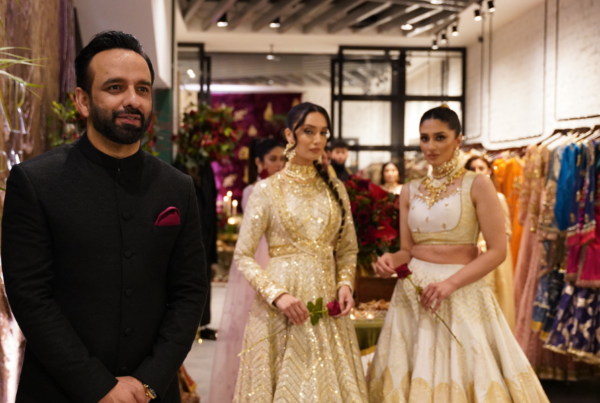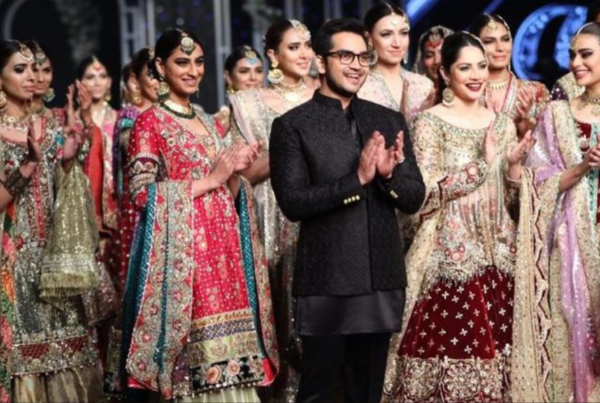“Pakistan needs to be part of the global fashion chain and this was a great way to put all that on one platform.†– Rabiya Javeri outlines the higher purpose that FPW served.
“We’re not generating millions of dollars at fashion weeks in Pakistan,†Rabiya Javeri, Secretary General TDAP, told me once fashion week concluded. “That formula does not apply here. Pakistan’s huge and dynamic creative industry has to be supported at fashion weeks. We must become part of the global chain. Couture is the highest value item on that global value chain for garments and Pakistan has design identity. Pakistan can easily be part of this chain providing we show the world our handicraft and design and potential. Fashion Week is a great way to put all that on one platform.â€
And so TDAP, coming on board with Fashion Pakistan Council as partner for the first time, brought in foreign delegates looking for sourcing opportunities in Pakistan. One of the most high profile TDAP guests, Olivier Lapidus had flown in from Paris to help create synergies for a project that had been in the doldrums for years.

Rabiya Javeri and Olivier Lapidus at the Albert de Mun fashion school in Paris. An MoU has been signed between Mun and the Textile Institute of Pakistan, which will finally get some much needed attention.

TIP, the Textile Institute of Pakistan, in Port Qasim area Karachi.
“The French delegation to Pakistan was a strong one,†Javeri emphasized. “Olivier’s remit was fashion and he came to support the connection between the Albert de Mun fashion school in Paris and the Textile Institute of Pakistan in Karachi. Olivier is a friend of Pakistan and was instrumental in creating these synergies. He did help set up the PIFD Lahore in collaboration with the Les Chambre de Syndicale de la Paris almost two decades ago and he was keen to have Mun partner with the Textile Institute of Pakistan in Karachi. TIP is an excellent place and needs upgradation in profile, which the French will give it. The best thing about Mun is that students are allowed to take orders from design houses and our students would be able to provide services to French designers through this partnership. Mun has a fashion show every season and one component will be offered to our students. They will have a platform to show at that event. Our students are cutting edge and I’m delighted that they will be getting this opportunity.â€
The Albert de Mun-Textile Institute of Pakistan synergy (the MoU has been signed for five years) was one big achievement made over fashion week. But what, one wondered, did the daily shows – the backbone of fashion week – offer buyers that were in town for the TEXPO exhibition?
“There were many buyers from Japan, Jordan, Dubai etc,†Javeri replied, “who were not necessarily buyers of couture but were here for garments. The idea at TEXPO was to present the entire value chain from yarn cotton, denim, fabric, garments and then fashion and couture. We presented the buyer the entire experience. If we want to survive we have to generate high value products and market them in the best possible way. It’s a process.â€




